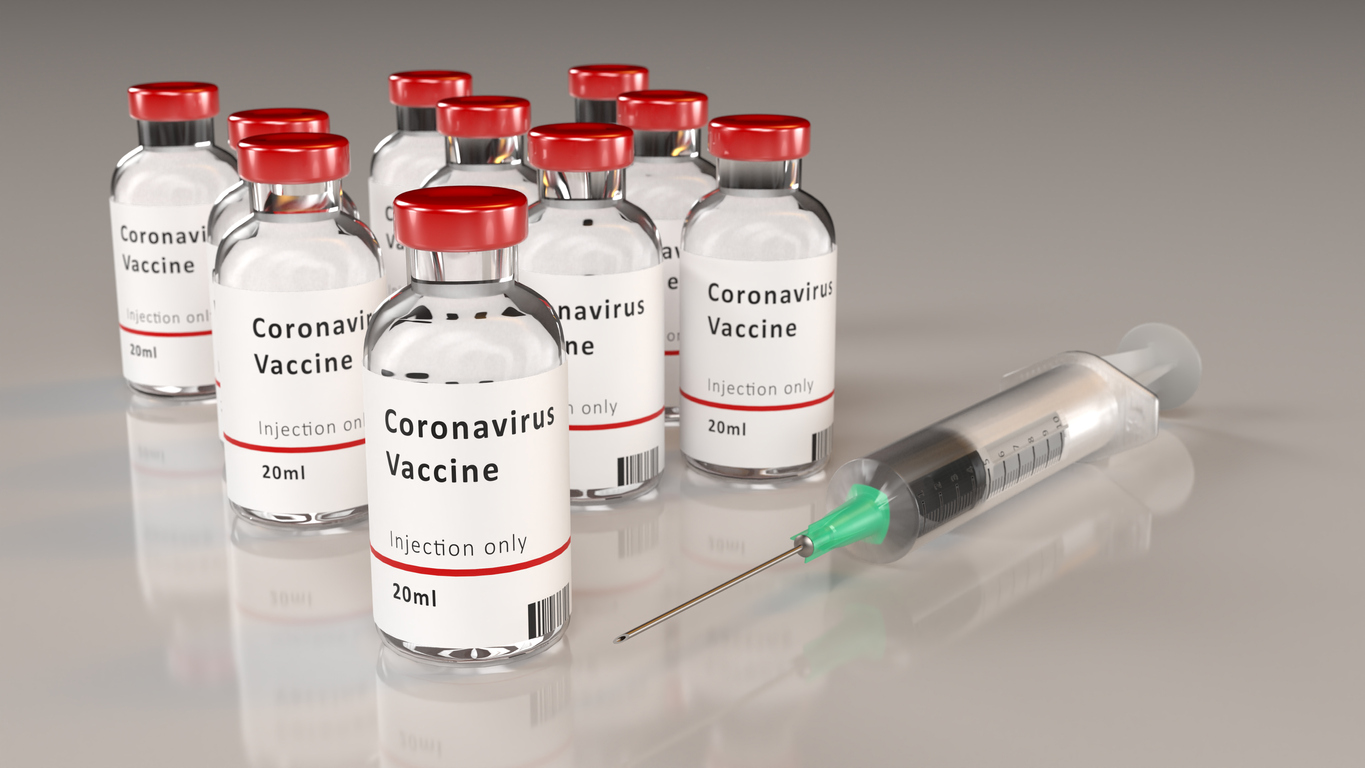
People with history of allergic reactions should avoid Pfizer’s COVID dose: UK
With prominent vaccine developers rushing to offer a shot against the COVID-19 pandemic, the UK’s Medicines and Healthcare products Regulatory Agency has warned that people with a history of significant allergic reactions should not have the Pfizer/BioNTech Covid dose..

With prominent vaccine developers rushing to offer a shot against the COVID-19 pandemic, the UK’s Medicines and Healthcare products Regulatory Agency has warned that people with a history of significant allergic reactions should not have the Pfizer/BioNTech Covid dose.
The warning came after two National Health Service workers in that country had allergic reactions on Tuesday (Dec 8).
The Federal Interactive: The Great Race to a COVID Vaccine
The advice applies to those who have had reactions to medicines, food or vaccines, the regulator said. The two people had a reaction shortly after having the new jab, had treatment and are both fine now.
Several thousand people were vaccinated on Tuesday in hospital clinics on the first day of the UK rollout of the new COVID jab.
The advice also states that vaccines “should only be carried out in facilities where resuscitation measures are available.” “We are fully investigating the two reports that have been reported to us as a matter of priority,” an MHRA spokesperson said.
Pfizer said in a statement that it had been advised by the UK regulator of “two yellow card reports that may be associated with allergic reaction” due to administration of the vaccine.
The Federal Interactive: Coronavirus dashboard
“In the pivotal phase-3 clinical trial, this vaccine was generally well tolerated with no serious safety concerns reported by the independent Data Monitoring Committee. The trial has enrolled over 44,000 participants to date, over 42,000 of whom have received a second vaccination,” said Pfizer.
The US Food and Drug Administration (FDA) has said the Pfizer/BioNTech trial data hinted that there were potentially slightly more adverse responses thought to be allergic reactions among the vaccine group compared with the placebo group, at 0.63% compared with 0.51%.
Also read: Panel wants more data to approve emergency use of COVID vaccines
According to media reports, more than 200 COVID-19 vaccines are currently under development around the world.
In India, the Serum Insitute of India filed for emergency use authorization on Monday, followed by Bharat Biotech on Tuesday. Pfizer India has also sought emergency use authorization from the regulatory bodies in India.
The Oxford-AstraZeneca COVID-19 vaccine is being produced and tested in India by the Serum Institute of India, while Bharat Biotech, in partnership with ICMR has developed and is testing India’s first home-grown COVID-19 vaccine. The Oxford-AstraZeneca coronavirus vaccine which has been in the news for a while now has shown 70.4 per cent efficacy in the latest trials.
Also read: 6 volunteers opt out of AstraZeneca-Oxford vaccine’s trial in Mumbai
Haryana Health Minister Anil Vij, who took part in coronavirus vaccine trials a little over two weeks ago, had tested positive for the virus. “Covaxin clinical trials are based on a two-dose schedule, given 28 days apart. The vaccine efficacy will be determined 14 days post the second dose. Covaxin has been designed to be efficacious when subjects receive both doses,” Bharat Biotech, whose first dose was given to Vij, was quoted as saying.
“The phase-3 trials are double-blinded and randomized, where 50 per cent of subjects receive vaccine and 50 per cent of subjects receive placebo,” said Bharat Biotech.

